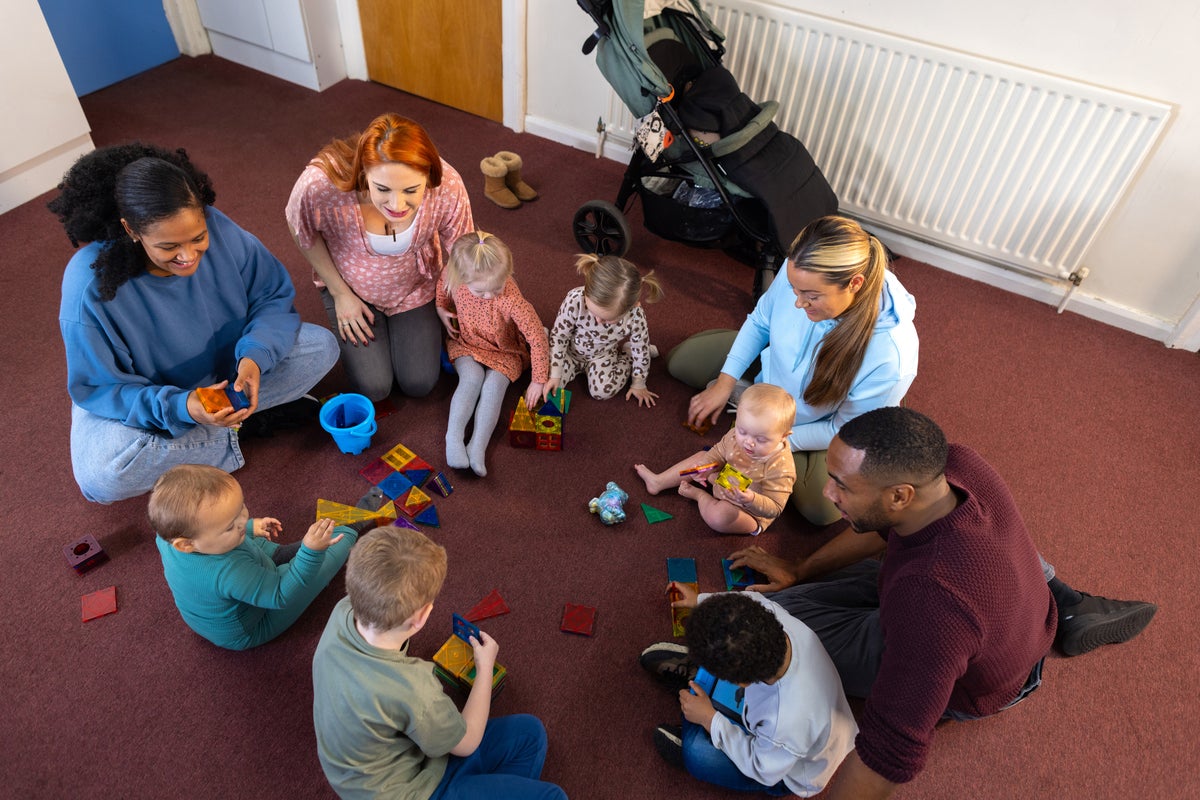
Support truly
independent journalism
Larger families are more likely to experience food insecurity than families with two children or less, according to research by a charity, which said that the findings show the impact of the two-child benefit cap.
Almost a quarter of three-child families were unsure where they would get their meals from last month, data from charity the Food Foundation suggests.
More than 6,000 adults were surveyed in the week leading up to the general election, and the results have been published just days after prime minister Sir Keir Starmer saw off a rebellion by seven of his own MPs in a vote on the controversial policy.
John McDonnell, Rebecca Long-Bailey, Apsana Begum, Richard Burgon, Ian Byrne, Imran Hussain and Zarah Sultana were suspended after they voted to scrap it.
The Food Foundation said its research shows that action is “desperately needed” to relieve the pressure on families across the UK who are going hungry.
Its online survey asked 6,177 adults in the UK whether, in the previous month, they had reduced the size of or skipped meals because they could not afford or get access to food – or whether they had been hungry but not eaten for the same reason.
The polling, carried out by YouGov, found that 14 per cent of households were judged by these measures to have experienced food insecurity.
When it came to households with children, almost a fifth (18 per cent) reported experiencing food insecurity, compared with 12 per cent of households without children.
The charity said the findings demonstrate the impact of the two-child benefit limit, which restricts child tax credit and universal credit to the first two children in most households.
Some 23 per cent of families with three children and 26 per cent of families with four or more children experienced food insecurity, according to the survey.
This compared with 17 per cent of households with one or two children.
Single-parent households were nearly twice as likely to be food insecure as households with multiple adults and a child or children, at 31 per cent compared to 16 per cent.
Campaigners have long called for the policy, which was introduced by the Conservatives in 2015 and has been in effect since 2017, to be scrapped.
This week, seven Labour MPs were suspended by their party after backing an SNP motion to scrap the measure.
Labour MP Kim Johnson said she had voted with the government “for unity”, but she warned that the strength of feeling within her party was “undeniable”.
“We moved the dial, the campaign will continue,” she said.
Figures published earlier this month by the Department for Work and Pensions showed that 1.6 million children were living in households affected by the policy as of April this year, up from 1.5 million in April 2023.
Labour has blamed spending constraints for its decision not to ditch the policy immediately, indicating that there would be no change to the policy without economic growth.
Think tank the Resolution Foundation has said that abolishing the two-child limit would cost the government somewhere between £2.5bn and £3.6bn in 2024/25, but that the cost would be “low compared to the harm that the policy causes”.
The government’s formation of a child poverty taskforce to inform a strategy to tackle the root causes has been welcomed by the Food Foundation, but the charity said that the King’s Speech had been “sorely lacking” in plans for “immediate action that is so desperately needed to relieve the families across the UK who are going hungry”.
Shona Goudie, policy and advocacy manager at the charity, repeated the call for the cap to be scrapped, but said that there are other measures the new government can take at the same time.
She said: “We urge the government to set reducing children’s food insecurity as a goal for the child poverty task force and Children’s Wellbeing Bill, and to take critical next steps to achieve this, including ensuring the national minimum/living wage and benefit levels cover the cost of basic essentials, including food; extending eligibility for nutritional safety nets, including free school meals at lunchtime and Healthy Start; and abolishing the two-child benefit limit.”
The Department for Work and Pensions has been contacted for comment.







